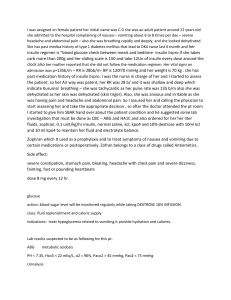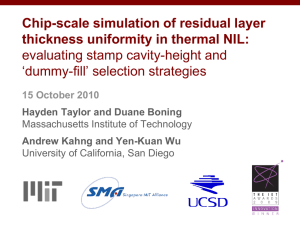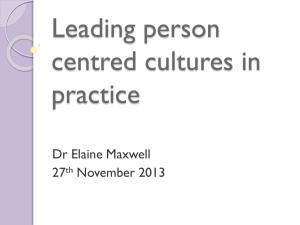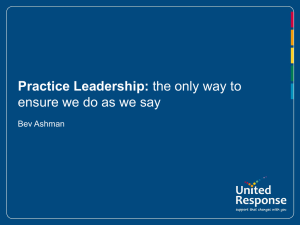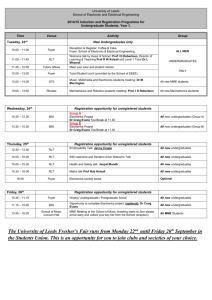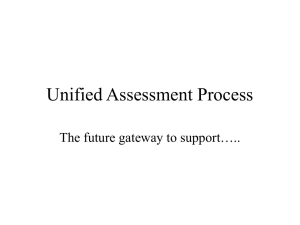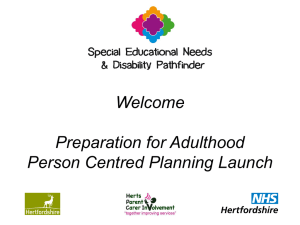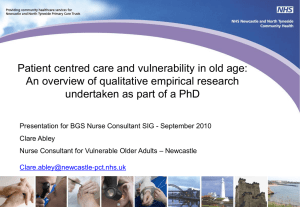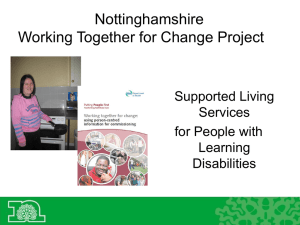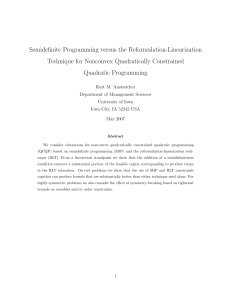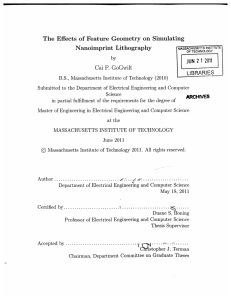Research – led teaching
advertisement
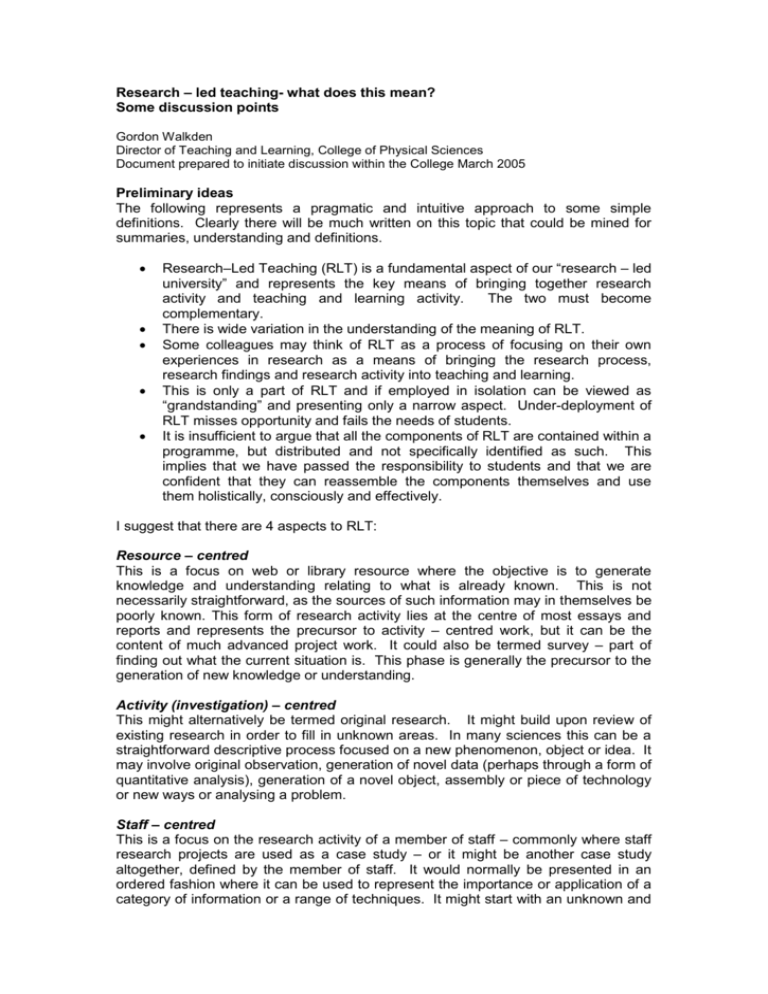
Research – led teaching- what does this mean? Some discussion points Gordon Walkden Director of Teaching and Learning, College of Physical Sciences Document prepared to initiate discussion within the College March 2005 Preliminary ideas The following represents a pragmatic and intuitive approach to some simple definitions. Clearly there will be much written on this topic that could be mined for summaries, understanding and definitions. Research–Led Teaching (RLT) is a fundamental aspect of our “research – led university” and represents the key means of bringing together research activity and teaching and learning activity. The two must become complementary. There is wide variation in the understanding of the meaning of RLT. Some colleagues may think of RLT as a process of focusing on their own experiences in research as a means of bringing the research process, research findings and research activity into teaching and learning. This is only a part of RLT and if employed in isolation can be viewed as “grandstanding” and presenting only a narrow aspect. Under-deployment of RLT misses opportunity and fails the needs of students. It is insufficient to argue that all the components of RLT are contained within a programme, but distributed and not specifically identified as such. This implies that we have passed the responsibility to students and that we are confident that they can reassemble the components themselves and use them holistically, consciously and effectively. I suggest that there are 4 aspects to RLT: Resource – centred This is a focus on web or library resource where the objective is to generate knowledge and understanding relating to what is already known. This is not necessarily straightforward, as the sources of such information may in themselves be poorly known. This form of research activity lies at the centre of most essays and reports and represents the precursor to activity – centred work, but it can be the content of much advanced project work. It could also be termed survey – part of finding out what the current situation is. This phase is generally the precursor to the generation of new knowledge or understanding. Activity (investigation) – centred This might alternatively be termed original research. It might build upon review of existing research in order to fill in unknown areas. In many sciences this can be a straightforward descriptive process focused on a new phenomenon, object or idea. It may involve original observation, generation of novel data (perhaps through a form of quantitative analysis), generation of a novel object, assembly or piece of technology or new ways or analysing a problem. Staff – centred This is a focus on the research activity of a member of staff – commonly where staff research projects are used as a case study – or it might be another case study altogether, defined by the member of staff. It would normally be presented in an ordered fashion where it can be used to represent the importance or application of a category of information or a range of techniques. It might start with an unknown and proceed to frame an approach, methods of research, and reveal an answer or a series of answers. It should finish with a critical evaluation of these, but often does not! Output – centred This can have several aspects. It might be the designed programme that is necessary to create a trained researcher; it might be arriving at the trained researcher per se, or it might be the unit of output of research activity itself, such as a thesis. In the latter case many honours projects focus on this output as the sole means of assessment of a substantial number of credits. Skills: Research led teaching requires a mature set of skills that not all students will have at the outset. I also believe that they must be explicitly aware of what these skills are. We might list the tasks (as opposed to skills) necessary as including: The ability to understand a set problem and analyse its components The ability to write this accurately and succinctly and plan work that is focused, relevant and feasible. The ability to find relevant information The ability to read, and understand the importance of, relevant literature, and to extract the key information. The ability to summarise this and integrate it with other cognate information and to develop new knowledge or new frameworks or understanding of existing knowledge The ability to see the gaps and plan the necessary work to fill these The ability to work in a “specialist” environment in which new information is generated (this might be field, lab, interview, www etc.) The ability to analyse data statistically and to manipulate numerical data The ability to use intuition, originality, initiative and critical review The ability to recognise shifting paradigms in a study as distinct from emerging ramifications and to decide where to stop The ability to bring an investigation to a conclusion on target The ability to write work succinctly and informatively according to the requirements of the target audience Several of these are sophisticated tasks, so that the skills protocol necessary to describe them and prepare for them must be one that starts in an elementary way and builds as the student matures. We would need to start with the more routine and easily visualised tasks, progressing from level to level, making the definitions more sophisticated and the tasks more demanding. Next: to define the skills protocol……………………… To be developed and extended. GMW 02/03/05 (Note added November 2007- the Skills protocol referred to above has evolved into what is now Appendix 3 in my paper on Curricular Review and Curriculum Reform)
